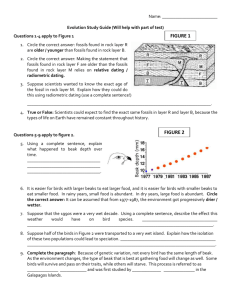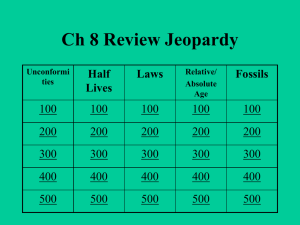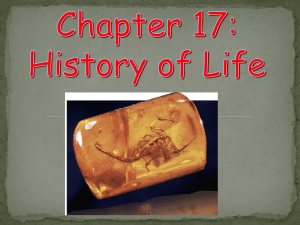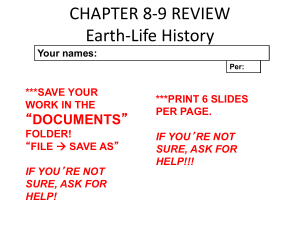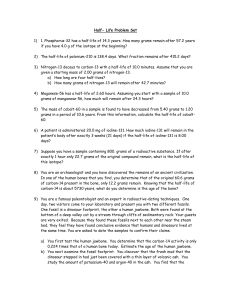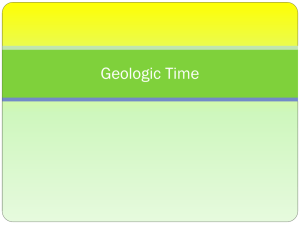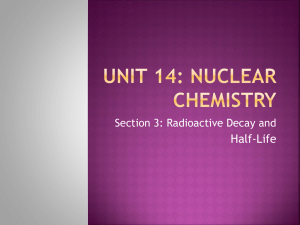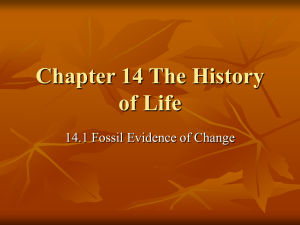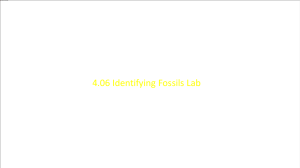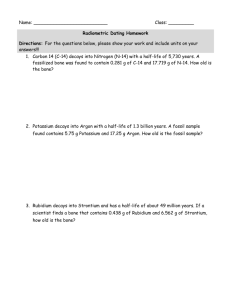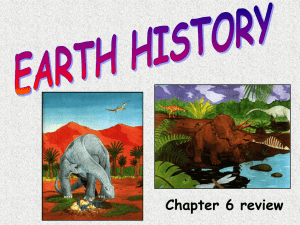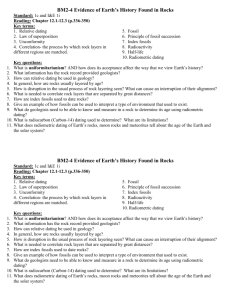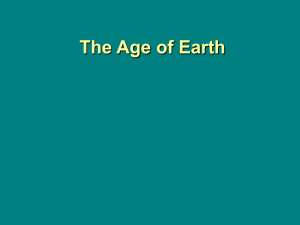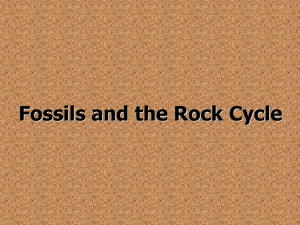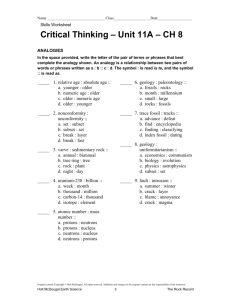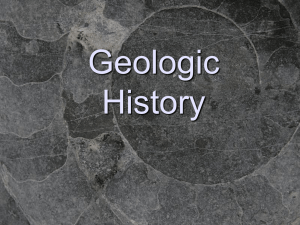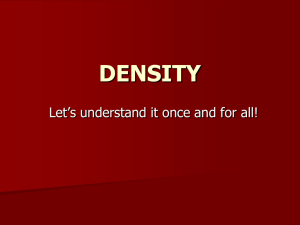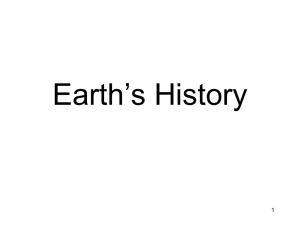Geologic Time Quiz Review
advertisement
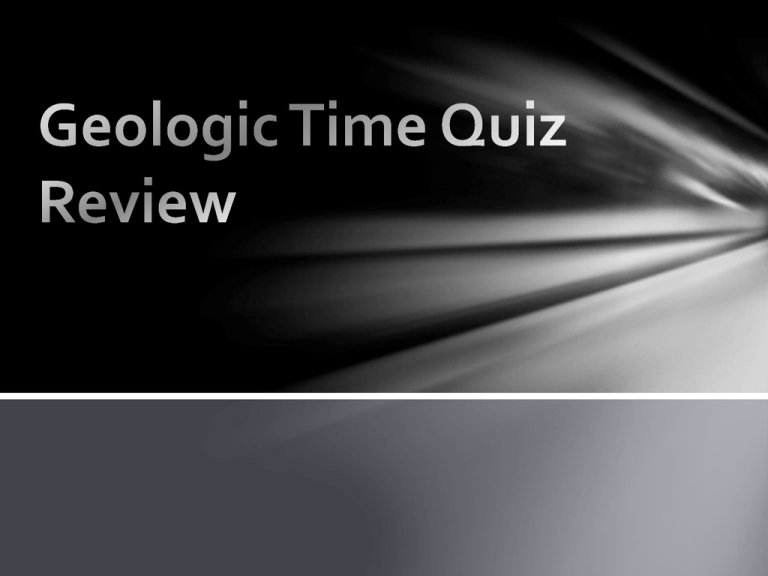
Are you ready for tomorrow’s quiz? A. YES! The study guide and the practice test helped a ton! B. I think so…but I should look over my notes some more. C. I am lost. Molds, casts, coprolites, and petrified wood are all examples of ________. A. Disconformities B. Radioactive isotopes C. fossils D. unconformities The youngest rock layer in an undisturbed rock sequence occurs ___. A. At the top of the sequence B. Above the sedimentary rock layer C. At the bottom of the sequence D. Above the unconformity Radioactive dating enables geologists to determine A. The absolute ages of fossils B. The half-life of a fossil organisms C. The age of the atoms in a rock D. The relative ages of fossils The amount of time it takes for onehalf of the original amount of an isotope to decay is known as its ____. A. Radioactivity B. Half-life C. Correlation D. Period Cyanobacteria use the process of photosynthesis to produce energy, and _____is given off as a waste product. A. Carbon dioxide B. Nitrogen C. Hydrogen D. Oxygen Evolution is the process by which organisms ______. A. Leave behind evidence of their existence. B. Adapt to changes in their environments C. Digest and grind their food D. Become preserved by mineral replacement Mummified animals found in dry caves can be examples of fossils with _____. A. Superposition B. Altered hard parts C. Original preservation D. Premineralization List the following units of geologic time in order from shortest to longest. A. epoch B. era C. eon D. period Which of the following is used to determine the relative age of a rock? A. Radiometric dating B. Correlation C. Relative-age dating D. Premineralization When part of the rock record is destroyed, the erosional gap that forms is a(n) _______. A. Superposition B. Key bed C. Inclusion D. Unconformity Index fossils are useful to geologists if the fossils _____. A. Are scarce B. Are not easily recognized C. Have lived over a short period of time D. Are not widely distributed geographically. Which of the following is used to determine the absolute age of a rock? A. Radiometric dating B. Correlation C. Relative-age dating D. Premineralization Which layer in this diagram is the oldest? A. K B. P C. Q D. O Which layer in this diagram is the youngest? A. K B. P C. Q D. O Layer P is called a(n) ______________. A. Unconformity B. Fault C. Inclusion D. Intrusion List the following rock layers in order from oldest to youngest. A. H B. J C. P D. O E. L Short Answer Questions: Type your response using your keypad. PRACTICE: What is the room number of this classroom? 257 1 Earth is _______ billion years old. 4.6 0.1 The half-life of carbon-14 is 5370 years. A sample contains 180 grams of carbon initially. Now it contains 11.25 grams. How many halflives have passed? A. 2 B. 3 C. 4 D. 5 The half-life of carbon-14 is 5370 years. A sample contains 210 grams of carbon initially. How much will be left after 3 halflives? A. 105 grams B. 52.5 grams C. 26.25 grams D. 13.125 grams Which geologic principle is used when a geologist observes an outcrop of rocks and determines the bottom layers is the oldest? A. Uniformitarianism B. Original horizontality C. superposition D. inclusion Which of the following is NOT a likely source of the Precambrian Earth’s heat? A. radioactivity B. Asteroid impact C. Increased solar activity D. Gravitational contraction Remains of organisms in rocks are ____. A. Half-lives B. fossils C. unconformities D. extinctions Radiometric dating indicates that Earth is ______ years old. A. 2000 B. 5000 C. 3.5 billion D. 4.6 billion If there is 16 grams of Carbon-14 were in the original organism, how much will be left after 2 half-lives? 4 1 The next smaller division of geologic time after the era is a(n) A. period B. stage C. epoch D. eon One of the earliest forms of life on Earth was the _____. A. gymnosperm B. cyanobacteria C. angiosperm D. dinosaur Dinosaurs lived during the ____ Era. A. Precambrian B. Paleozoic C. Mesozoic D. Cenozoic
